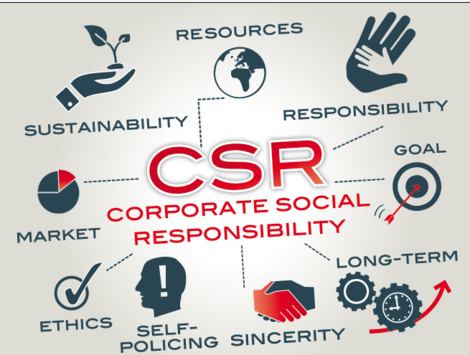If you haven’t heard of the idea of business ‘purpose’ then you have probably been on a very long holiday. It has risen up through the management ‘ether’ in a way that very few management concepts do – if it is a fad, then it is a big one.
However, there are many practitioners and scholars for whom the concept of ‘purpose’ represents a serious proposition for dealing with multiple issues that society and business face. But if that is so, what was CSR supposed to be doing and where does the rise of purpose leave those practicing or enabling CSR in their businesses?
What is the role of purpose?
Because a whole range of thought leaders and practitioners have just arrived at the island of purpose and are meeting each other, it is not yet clear exactly what purpose, as a stable business concept, means. The most common short-hand definition is ‘why’ a business exists. For A Blueprint for Better Business – a key organisation giving energy to this space, purpose is first and foremost about respecting and understanding the human person. Organisations are social entities with social impact and human’s desire to serve society as their higher purpose, is the means by which we unleash their potential and, as a result, organisational success. For others, purpose is purely a motivational concept that can increase profits. In communications departments that have leapt too soon, purpose is just another branding tool.
Where are we on our purpose journey?
A ground-breaking and inspiring two-day academic conference at London Business School that has just finished, underpinned how much thinking already exists, and at the same time how we have a way to go in providing clarity and business case for practitioners. We need to be clear about what it means to be a purpose-driven business, why you should want to and how you get there – and research I am currently undertaking with Jaideep Prabhu and Charlie Ebert from Cambridge Judge Business School will contribute to this.
The academic conference was preceded by a panel debate for a practitioner audience. One of the topics that came up was the relationship between purpose and CSR. In the interviews we undertook with large UK-based businesses leading the purpose agenda, it was apparent that a key way purpose is understood is the fact that it is not CSR.
How is purpose different from CSR?
Whereas CSR is seen by these companies as about compensating for issues created by core business activity, purpose was seen as creating positive effects from core businesses activity – whether purpose requires an ambition for this to have a net positive effect and how this is calculated is not yet clear. Either way, the powerful logic is that it’s no good robbing Peter to pay Paul. Instead it is the business model that provides both the best means to reduce societal impact, and most importantly to leverage what the company is best at (through employees operating at their most motivated) to contribute positively to society.
The relationship between responsibility and the treatment of doing good and being successful as intricately linked, is a key question here that has yet to be resolved. However, considering them to be split logics means that discrete charitable acts, including cause-related marketing, that mainly serve to give employees and customers a feel-good factor (and the organisation brownie points), cannot be considered ‘purpose’.
Should we be replacing CSR with purpose?
So does CSR have a role alongside purpose or are CSR activities an indication of a company that hasn’t quite matured to purpose – and so might start to be reputationally damaging? The answer is not clear and before you throw out your charity collections and volunteer schemes, these kinds of questions need serious reflection. Perhaps the discrete activities that have fallen under the CSR banner are the best launch pad for engaging employees in a deeper organisational purpose journey, or perhaps activities that already exist actually are the companies purpose being lived out.
No doubt CSR will be seen in the future as having been a key step in the journey to purpose – and at the same time as a rather bizarre way in which businesses balanced the paradoxical requirement to put shareholders above all other stakeholders, with the dawning reality of the untold damage this myopia was causing. In recent years, ‘Corporate Responsibility’ has aimed to break with CSR and interrelate business success and sustainability – it is how this term relates to purpose that will be trickier to pin down.
Dr Victoria Hurth is an associate professor in marketing and Faculty of Business lead for student satisfaction at Plymouth University.







